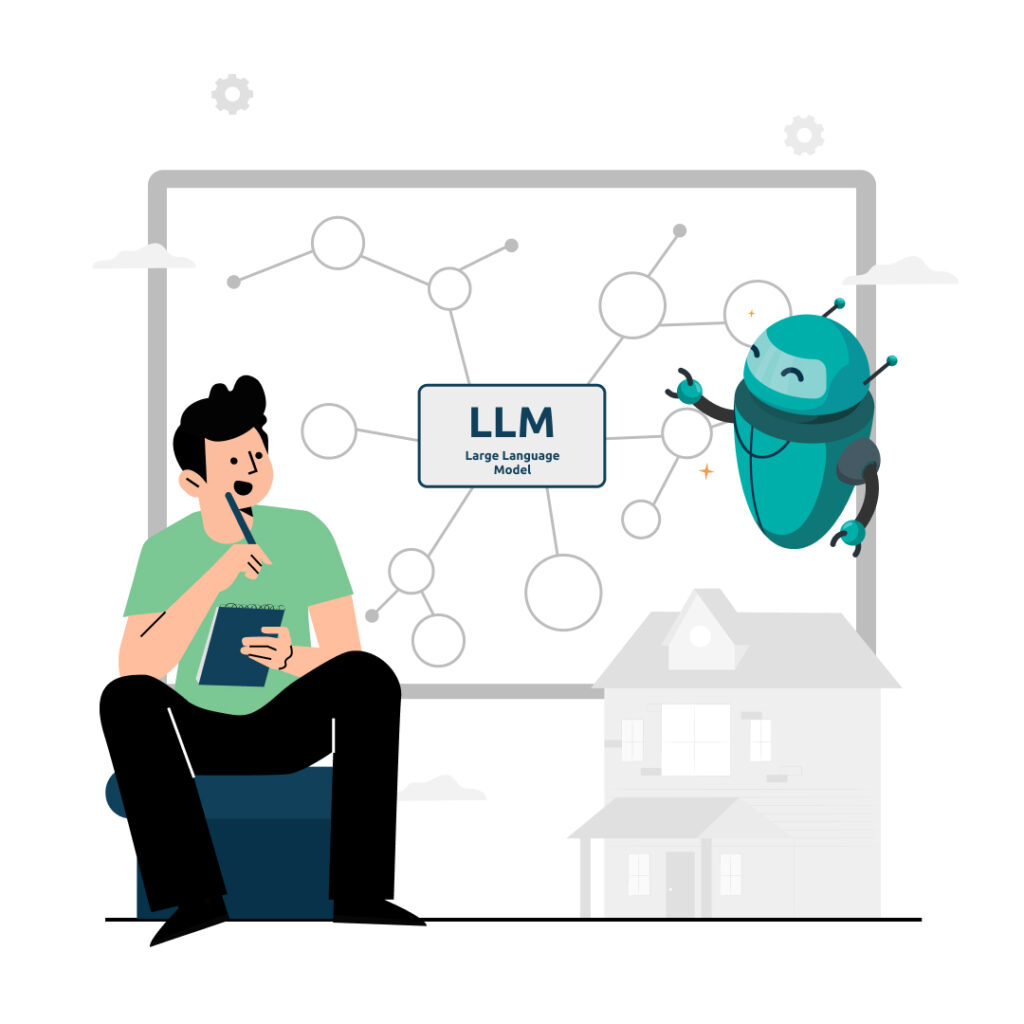Unlocking Success: The Essential Criteria for Implementing CRM in Real Estate
Overview of CRM in Real Estate
Customer Relationship Management (CRM) isn’t just a buzzword in the real estate industry; it’s a game-changer. At its core, CRM empowers agencies to streamline communication, enhance client relationships, and ultimately drive growth. In real estate, where every lead counts and every interaction matters, CRM systems act as the backbone, ensuring no opportunity slips through the cracks.
Importance of Effective CRM Implementation
Now, here’s the kicker: simply having a CRM system isn’t enough. The key lies in its effective implementation. Picture this: you’ve invested in cutting-edge CRM software, but if it’s not seamlessly integrated into your workflows or if your team doesn’t embrace it wholeheartedly, you’re essentially sitting on a goldmine without a map. Effective CRM implementation isn’t just about technology; it’s about strategy, alignment, and people.
Preview of Criteria for Successful Implementation
So, what does it take to nail CRM implementation in the real estate realm? Buckle up, because we’re about to embark on a journey through the essential criteria for success. From understanding your agency’s unique needs to selecting the right vendor and fostering user adoption, we’ve got you covered.
Demystifying Real Estate CRM Systems: A Comprehensive Guide
Definition and Purpose of CRM in Real Estate
Let’s kick things off with a clear understanding of what CRM actually means in the context of real estate. CRM, or Customer Relationship Management, isn’t just another tech acronym thrown around; it’s the lifeline of successful real estate agencies. At its core, CRM in real estate is all about managing interactions with current and potential clients, organizing leads, and nurturing relationships throughout the buying or selling journey. Think of it as your digital assistant, helping you stay on top of every client touchpoint and ensuring no opportunity slips through the cracks.
Types of CRM Systems Available for Real Estate Agencies
Now that we’ve established the importance of CRM, let’s explore the different flavors it comes in. Real estate agencies aren’t one-size-fits-all, and neither are CRM systems. Here’s a breakdown of the main types:
1. On-Premises CRM
Traditionally, on-premises CRM systems were the go-to choice for many businesses. These systems are installed locally on the company’s own servers and infrastructure, giving them full control over customization and data management. While on-premises CRM offers a high level of security and customization, it comes with hefty upfront costs and requires dedicated IT resources for maintenance and upgrades.
2. Cloud-Based CRM
Enter the era of cloud-based CRM solutions, revolutionizing the way businesses operate. Cloud-based CRM, also known as SaaS (Software as a Service), is hosted on remote servers and accessed through the internet. This means no more bulky hardware or complicated installations; all you need is an internet connection and a compatible device. Cloud-based CRM offers scalability, flexibility, and accessibility like never before, allowing real estate agencies to adapt to changing needs and market dynamics with ease.
3. Industry-Specific CRM Solutions
Real estate isn’t your average industry, and generic CRM systems often fall short when it comes to addressing its unique requirements. That’s where industry-specific CRM solutions step in. Tailored specifically for the real estate sector, these CRM platforms come equipped with features and functionalities designed to streamline property management, lead generation, and client communications. From tracking property listings to automating follow-ups, industry-specific CRM solutions empower real estate professionals to work smarter, not harder.
Assessing Your Agency’s Needs and Goals for CRM Implementation
When it comes to implementing a CRM system in your real estate agency, one size certainly does not fit all. Before diving headfirst into the world of customer relationship management, it’s crucial to take a step back and assess your agency’s unique needs and goals. In this section, we’ll explore the essential steps to effectively evaluate your agency’s requirements and lay the groundwork for a successful CRM implementation.
Conducting a Needs Analysis
Before you can address any challenges or set goals, you first need to identify what exactly your agency needs from a CRM system. This begins with conducting a thorough needs analysis, which involves:
1. Identifying Pain Points and Challenges
Take a moment to reflect on the pain points and challenges your agency currently faces in managing client relationships and transactions. Are you struggling to keep track of leads? Are communication channels disorganized? By pinpointing these pain points, you can better understand what functionalities your CRM system needs to address.
2. Setting Clear Objectives and Goals
Once you’ve identified the challenges, it’s time to set clear objectives and goals for your CRM implementation. What do you hope to achieve with the new system? Whether it’s increasing lead conversion rates, improving client satisfaction, or streamlining internal processes, setting SMART (Specific, Measurable, Achievable, Relevant, Time-bound) goals will guide your implementation strategy and measure success down the line.
Understanding Agency Size and Complexity
Next up, it’s essential to consider the size and complexity of your real estate agency. A small boutique agency with a handful of agents will have vastly different needs compared to a large multinational firm. Take stock of your agency’s size, team structure, and workflow intricacies to ensure your chosen CRM system aligns seamlessly with your operations.
Considering Scalability and Future Growth
While it’s essential to address your current needs, it’s equally important to plan for the future. A CRM system that meets your needs today may not necessarily scale as your agency grows. When evaluating CRM options, consider factors such as scalability, flexibility, and future-proofing. You want a system that can grow alongside your agency and adapt to evolving market trends and technologies.
Aligning CRM with Real Estate Business Processes: A Strategic Approach
Implementing a CRM system in your real estate agency isn’t just about adopting new technology; it’s about seamlessly integrating it into your existing business processes. In this section, we’ll explore the essential steps to ensure your CRM aligns harmoniously with your agency’s workflows, integrates smoothly with existing systems, and offers the customization and flexibility you need to succeed.
Mapping CRM to Real Estate Workflows
The first step in aligning CRM with your real estate business processes is to map out your workflows. Take the time to document each step of your client interaction process, from lead generation to closing the deal. By understanding how your agency operates, you can tailor your CRM system to support and enhance these workflows, rather than disrupt them.
Integration with Existing Systems and Tools
One of the key benefits of CRM is its ability to centralize data and streamline operations. To fully leverage this potential, it’s crucial to integrate your CRM system with existing tools and systems used in your agency. Here are some common integrations to consider:
1. MLS Integration
MLS (Multiple Listing Service) integration allows real estate agents to access and update property listings directly from their CRM system. This eliminates the need for manual data entry and ensures that your listings are always up-to-date across all platforms.
2. Email Marketing Platforms
Email marketing is a powerful tool for real estate agents, allowing them to nurture leads and stay in touch with clients. Integrating your CRM system with email marketing platforms such as Mailchimp or Constant Contact enables you to automate email campaigns, track engagement metrics, and personalize communication based on client preferences.
3. Accounting Software
For real estate agencies, managing finances is just as important as managing client relationships. Integrating your CRM system with accounting software like QuickBooks or Xero streamlines the invoicing and payment process, ensuring that financial data is accurate and up-to-date.
Customization and Flexibility of CRM Features
Every real estate agency is unique, with its own set of requirements and preferences. That’s why it’s essential to choose a CRM system that offers customization and flexibility in its features. Whether it’s custom fields, workflow automations, or personalized dashboards, a CRM system that can be tailored to your agency’s specific needs will ultimately drive greater efficiency and productivity.
Empowering Your Team: User Adoption and Training for Real Estate CRM Systems
Implementing a CRM system in your real estate agency is just the first step towards driving growth and efficiency. To truly harness the power of CRM, you need buy-in from your team and a robust training program in place. In this section, we’ll explore the importance of user adoption, strategies for comprehensive training, and tips for encouraging ongoing engagement and feedback.
Importance of User Buy-In
User buy-in is the foundation of successful CRM implementation. Without the support and enthusiasm of your team, even the most advanced CRM system will fall flat. Here’s why user buy-in is crucial:
- Increased Efficiency: When your team embraces CRM, they’ll streamline their workflows, automate repetitive tasks, and focus their energy on high-value activities.
- Improved Collaboration: CRM fosters collaboration and communication among team members, ensuring everyone is on the same page and working towards common goals.
- Enhanced Client Relationships: By consistently inputting and updating client data in CRM, your team can provide personalized service and build stronger relationships with clients.
Providing Comprehensive Training Programs
Now that we understand the importance of user buy-in, let’s dive into how to achieve it through comprehensive training programs.
1. Initial Training Sessions
Kick off your CRM implementation with thorough initial training sessions for all users. These sessions should cover:
- System Overview: Introduce users to the CRM system, its features, and how it aligns with agency goals.
- Hands-On Practice: Provide hands-on practice exercises to familiarize users with navigating the system, entering data, and performing common tasks.
- Role-Specific Training: Tailor training sessions to different roles within your agency, highlighting features and functionalities relevant to each role.
2. Ongoing Support and Education
Training shouldn’t stop after the initial sessions. To ensure long-term success, provide ongoing support and education for your team. Here’s how:
- Regular Check-Ins: Schedule regular check-ins to address any questions or challenges users may face and provide additional training as needed.
- Knowledge Base: Create a centralized knowledge base or resource library where users can access training materials, tutorials, and FAQs.
Continuous Learning Opportunities: Encourage users to explore advanced features, attend webinars or workshops, and participate in online forums to continue learning and improving their CRM skills.
Encouraging User Engagement and Feedback
Finally, to maintain momentum and drive continuous improvement, it’s essential to encourage user engagement and feedback.
- Celebrate Successes: Recognize and celebrate achievements and milestones as users become more proficient with CRM.
- Seek Feedback: Regularly solicit feedback from users about their experiences with CRM, including what’s working well and areas for improvement.
- Implement User Suggestions: Act on user feedback by implementing suggested improvements or enhancements to the CRM system.
Safeguarding Your Data: Key Considerations for Real Estate CRM Systems
Implementing a CRM system in your real estate agency brings numerous benefits, from streamlining workflows to improving client relationships. However, with great power comes great responsibility – particularly when it comes to managing and protecting sensitive data. In this section, we’ll delve into the essential considerations for data management and security within CRM systems.
Data Quality and Accuracy
First and foremost, maintaining data quality and accuracy is paramount for effective CRM usage. Here’s why it matters:
- Client Trust: Clients expect accurate and up-to-date information from their real estate agents. By ensuring data quality, you build trust and credibility with your clients.
- Business Insights: Reliable data serves as the foundation for generating actionable insights and making informed business decisions. Inaccurate data can lead to misinformed strategies and missed opportunities.
- Compliance Requirements: Many data protection regulations, such as GDPR and CCPA, mandate the accuracy and integrity of personal data. Failing to maintain data quality can result in hefty fines and reputational damage.
To maintain data quality and accuracy, implement regular data cleansing procedures, establish data validation protocols, and provide training to ensure all users understand the importance of accurate data entry.
Compliance with Data Protection Regulations
In an increasingly regulated environment, compliance with data protection regulations is non-negotiable. Here’s what real estate agencies need to consider:
- GDPR: The General Data Protection Regulation (GDPR) imposes strict requirements on how personal data of EU residents is collected, processed, and stored. Ensure your CRM system complies with GDPR principles, such as data minimization, transparency, and individual rights.
- CCPA: The California Consumer Privacy Act (CCPA) grants California residents specific rights over their personal information held by businesses. Even if your agency isn’t based in California, complying with CCPA standards can serve as a best practice for data protection.
To ensure compliance with data protection regulations, conduct regular audits of your CRM system’s data handling practices, implement privacy-by-design principles, and provide training to employees on their obligations under relevant regulations.
Implementing Security Measures to Protect Sensitive Information
Last but certainly not least, implementing robust security measures is essential for protecting sensitive information from unauthorized access or breaches. Here are some security measures to consider:
- Encryption: Encrypt sensitive data both in transit and at rest to prevent unauthorized access.
- Access Controls: Implement role-based access controls to restrict access to sensitive data based on user roles and responsibilities.
- Regular Audits: Conduct regular security audits and vulnerability assessments to identify and address potential security risks.
- Employee Training: Educate employees on security best practices, such as creating strong passwords, identifying phishing attempts, and safeguarding sensitive information.
Tracking and Measuring Success in Real Estate CRM Implementation
To truly maximize its potential and drive success, you need to track and measure your progress every step of the way. In this section, we’ll delve into the essential aspects of tracking and measuring success in CRM implementation.
Defining Key Performance Indicators (KPIs)
Key Performance Indicators (KPIs) are the compass that guides your CRM journey, helping you stay on course and measure the impact of your efforts. Here are some essential KPIs to consider for real estate CRM implementation:
- Lead Conversion Rate: Measure the percentage of leads that convert into clients. This KPI helps you assess the effectiveness of your lead generation and nurturing efforts.
- Client Satisfaction Score: Gauge client satisfaction through surveys or feedback forms. A high satisfaction score indicates strong client relationships and successful CRM implementation.
- Time to Close: Track the average time it takes to close deals from initial contact to contract signing. This KPI reflects the efficiency of your sales process and CRM workflows.
- Return on Investment (ROI): Calculate the ROI of your CRM investment by comparing the costs incurred with the benefits gained. A positive ROI indicates that your CRM system is generating value for your agency.
Utilizing Analytics and Reporting Tools
Analytics and reporting tools are your eyes and ears in the world of CRM, providing valuable insights into your agency’s performance. Here’s how you can leverage these tools effectively:
- Dashboard Customization: Customize your CRM dashboard to display relevant metrics and KPIs at a glance. This allows you to track progress in real-time and make data-driven decisions.
- Advanced Analytics: Dive deeper into your data with advanced analytics features such as trend analysis, cohort analysis, and predictive modeling. These insights can help you identify patterns and opportunities for improvement.
- Scheduled Reports: Set up scheduled reports to receive regular updates on key metrics and performance indicators. This ensures that you’re always informed and can take timely action when needed.
Continuous Monitoring and Improvement Strategies
Success in CRM implementation is not a one-time event; it’s an ongoing process of continuous improvement. Here are some strategies to ensure that your agency stays on the path to success:
- Regular Performance Reviews: Conduct regular performance reviews to evaluate the effectiveness of your CRM system and identify areas for improvement.
- User Feedback Loop: Solicit feedback from your team members and clients on their experience with the CRM system. Use this feedback to make adjustments and enhancements as needed.
- Training and Education: Invest in ongoing training and education to ensure that your team is equipped with the knowledge and skills needed to maximize the benefits of CRM.
Cost Considerations and ROI Analysis: Making Informed Decisions for Your Business
Running a business involves a multitude of decisions, big and small. When it comes to implementing new strategies or investing in tools and technologies, understanding the costs involved and the potential return on investment (ROI) is crucial. In this section, we’ll explore how to evaluate the total cost of ownership (TCO), calculate ROI, and budget effectively for both initial setup and ongoing expenses.
Evaluating Total Cost of Ownership (TCO)
Before diving into any new endeavor, it’s essential to have a clear understanding of the total cost of ownership (TCO). TCO goes beyond the initial purchase price and encompasses all costs associated with owning and operating a particular asset or implementing a new strategy.
Identifying Direct Costs
Direct costs are the most obvious expenses associated with a project or investment. These can include:
- Purchase Price: The upfront cost of acquiring a product or service.
- Installation and Setup Fees: Charges associated with setting up and implementing the solution.
- Training Costs: Expenses related to training staff members to use the new tool or technology effectively.
- Licensing and Subscription Fees: Ongoing fees for using software or accessing services.
Factoring in Indirect Costs
Indirect costs are often overlooked but can significantly impact the TCO. These may include:
- Maintenance and Support: Fees for ongoing maintenance, updates, and technical support.
- Downtime and Productivity Losses: The cost of any disruptions or downtime caused by the new implementation.
- Integration Costs: Expenses associated with integrating the new solution with existing systems or processes.
- Opportunity Costs: The potential revenue or savings that could have been generated if resources were allocated elsewhere.
By accounting for both direct and indirect costs, businesses can gain a comprehensive understanding of the true TCO and make informed decisions about whether the investment is worthwhile.
Calculating Return on Investment (ROI)
Once the TCO is determined, the next step is to calculate the return on investment (ROI). ROI measures the profitability of an investment by comparing the gains or benefits against the costs incurred.
Defining ROI Metrics
To calculate ROI accurately, it’s essential to identify the relevant metrics and outcomes associated with the investment. These may include:
- Increased Revenue: Any additional income generated as a result of the investment.
- Cost Savings: Reductions in expenses or operational costs.
- Improved Efficiency: Time or resource savings achieved through increased productivity or streamlined processes.
- Enhanced Customer Satisfaction: Benefits resulting from improved customer experience or retention rates.
ROI Calculation Formula
The formula for calculating ROI is relatively straightforward:
ROI = (Net Gain / Total Cost) x 100%
Where:
- Net Gain: The total benefit or profit generated from the investment.
- Total Cost: The overall cost of acquiring and implementing the solution.
Budgeting for Initial Setup and Ongoing Expenses
Effective budgeting is crucial for managing both initial setup costs and ongoing expenses associated with a project or investment.
Initial Setup Budget
When budgeting for the initial setup, consider the following factors:
- One-time Costs: Identify all upfront expenses, including purchase price, setup fees, and training costs.
- Contingency Fund: Allocate a portion of the budget for unexpected expenses or unforeseen challenges.
- ROI Projection: Use ROI calculations to assess the potential long-term benefits and justify the initial investment.
Ongoing Expenses Budget
For ongoing expenses, it’s essential to create a sustainable budget that accounts for:
- Recurring Fees: Budget for monthly or annual subscription fees, maintenance costs, and support services.
- Scalability: Anticipate future growth and adjust the budget accordingly to accommodate additional users or increased usage.
- Monitoring and Optimization: Allocate resources for monitoring performance metrics, conducting regular reviews, and making necessary optimizations to maximize ROI.
By carefully planning and budgeting for both initial setup costs and ongoing expenses, businesses can ensure that their investments yield positive returns and contribute to long-term success.
Selecting the Right Vendor and Implementation Partner for Your Real Estate CRM
Choosing the right vendor and implementation partner is crucial for the successful adoption of a CRM system in your real estate agency. In this section, we’ll explore the steps involved in researching CRM providers, evaluating vendor reputation, and collaborating with experienced implementation partners.
Researching CRM Providers and Solutions
With numerous CRM providers and solutions available in the market, conducting thorough research is essential to finding the best fit for your agency’s needs. Here’s how you can approach the research process:
- Define Your Requirements: Start by clearly defining your agency’s requirements and objectives for CRM implementation. Consider factors such as scalability, customization options, integration capabilities, and budget constraints.
- Explore Available Options: Research CRM providers and solutions that align with your requirements. Explore their websites, read product documentation, and request demos or trials to get a hands-on feel for the software.
- Compare Features and Pricing: Compare features, pricing plans, and contract terms across different CRM solutions. Pay attention to factors such as user interface, ease of use, customer support, and scalability options.
- Seek Recommendations: Reach out to colleagues, industry peers, and professional networks for recommendations and insights. Their firsthand experiences can provide valuable guidance in the vendor selection process.
By conducting comprehensive research, you can narrow down your options and identify the CRM solution that best meets your agency’s needs.
Evaluating Vendor Reputation and Customer Reviews
Once you’ve identified potential CRM providers, it’s essential to assess their reputation and track record. Here’s how you can evaluate vendor reputation and customer reviews:
- Check References: Request references from the CRM providers and reach out to existing customers for feedback. Ask about their experience with the software, level of customer support, and overall satisfaction with the vendor.
- Read Customer Reviews: Browse online reviews and testimonials from other real estate agencies who have used the CRM solution. Pay attention to both positive and negative feedback to gain a balanced perspective.
- Research Vendor Stability: Assess the financial stability and longevity of the CRM provider. A vendor with a solid track record and a commitment to innovation is more likely to provide reliable software and ongoing support.
By gathering insights from customer reviews and evaluating vendor reputation, you can make an informed decision when selecting a CRM provider for your agency.
Collaborating with Experienced Implementation Partners
Implementing a CRM system involves more than just installing software—it requires expertise in customization, integration, and user training. Collaborating with experienced implementation partners can streamline the process and ensure successful adoption. Here’s how you can find the right implementation partner:
- Evaluate Experience and Expertise: Look for implementation partners with a proven track record of success in CRM implementation, particularly in the real estate industry. Assess their experience, certifications, and expertise in working with CRM solutions.
- Review Case Studies and Success Stories: Review case studies and success stories from previous implementations to gauge the partner’s capabilities and results. Look for evidence of successful deployments and satisfied clients.
- Seek Recommendations: Seek recommendations from CRM providers or industry associations for reputable implementation partners. Ask for referrals from other real estate agencies who have undergone successful CRM implementations.
By collaborating with experienced implementation partners, you can leverage their expertise to ensure a smooth and successful CRM deployment for your agency.
Conclusion
In conclusion, successfully implementing a CRM system in a real estate agency requires careful consideration of various factors, from defining agency needs to selecting the right vendor and implementation partner. By following the criteria outlined in this article, agencies can ensure a smooth and effective CRM implementation that drives growth, enhances client relationships, and improves operational efficiency.
Key aspects to consider include:
- Understanding Real Estate CRM Systems: Begin by gaining a comprehensive understanding of CRM systems tailored for the real estate industry, including their purpose, types, and industry-specific solutions.
- Assessing Agency Needs and Goals: Conduct a thorough needs analysis to identify pain points, set clear objectives, understand agency size and complexity, and plan for scalability and future growth.
- Aligning with Business Processes: Map the CRM system to existing workflows, integrate it with essential tools and systems, and ensure customization and flexibility to meet agency-specific requirements.
- User Adoption and Training: Prioritize user buy-in, provide comprehensive training programs, and encourage user engagement and feedback to foster successful CRM adoption.
- Tracking and Measuring Success: Define key performance indicators (KPIs), utilize analytics and reporting tools, and implement continuous monitoring and improvement strategies to track progress and optimize outcomes.
- Cost Considerations and ROI Analysis: Evaluate total cost of ownership (TCO), calculate return on investment (ROI), and budget effectively for initial setup and ongoing expenses to maximize the value of CRM implementation.
- Vendor Selection and Implementation Partners: Conduct research to identify suitable CRM providers and solutions, evaluate vendor reputation and customer reviews, and collaborate with experienced implementation partners to ensure a smooth and successful deployment.
By adhering to these criteria and leveraging best practices, real estate agencies can harness the full potential of CRM technology to streamline operations, enhance client experiences, and drive sustainable growth in today’s competitive market landscape.












